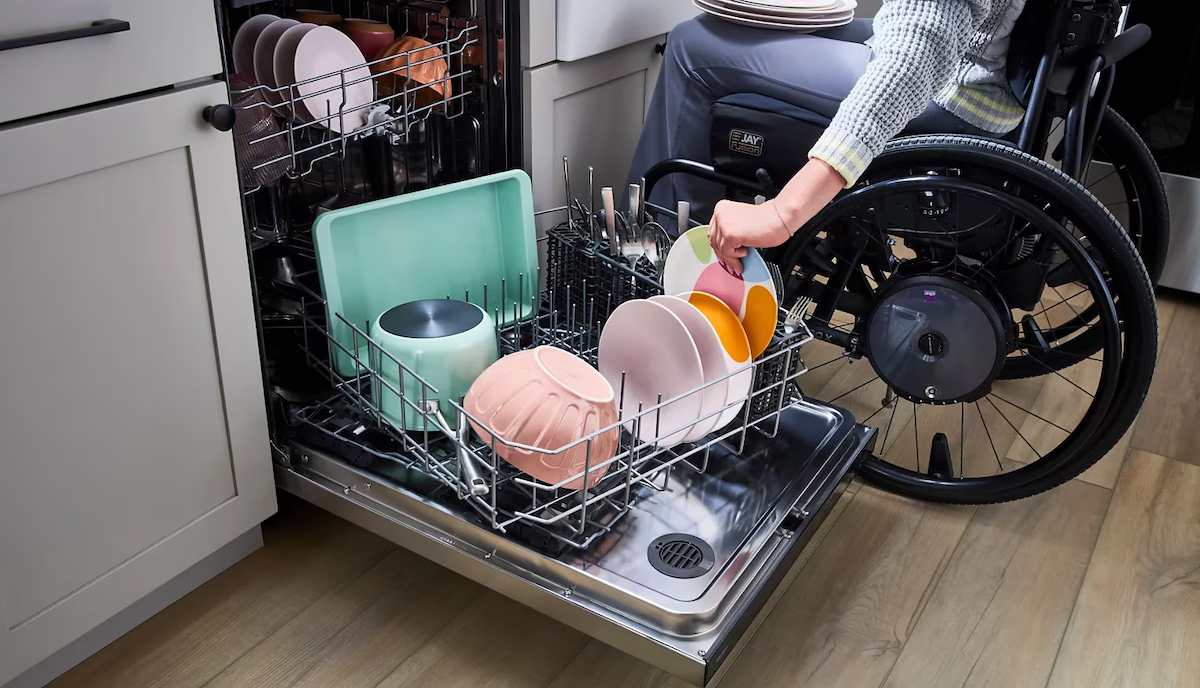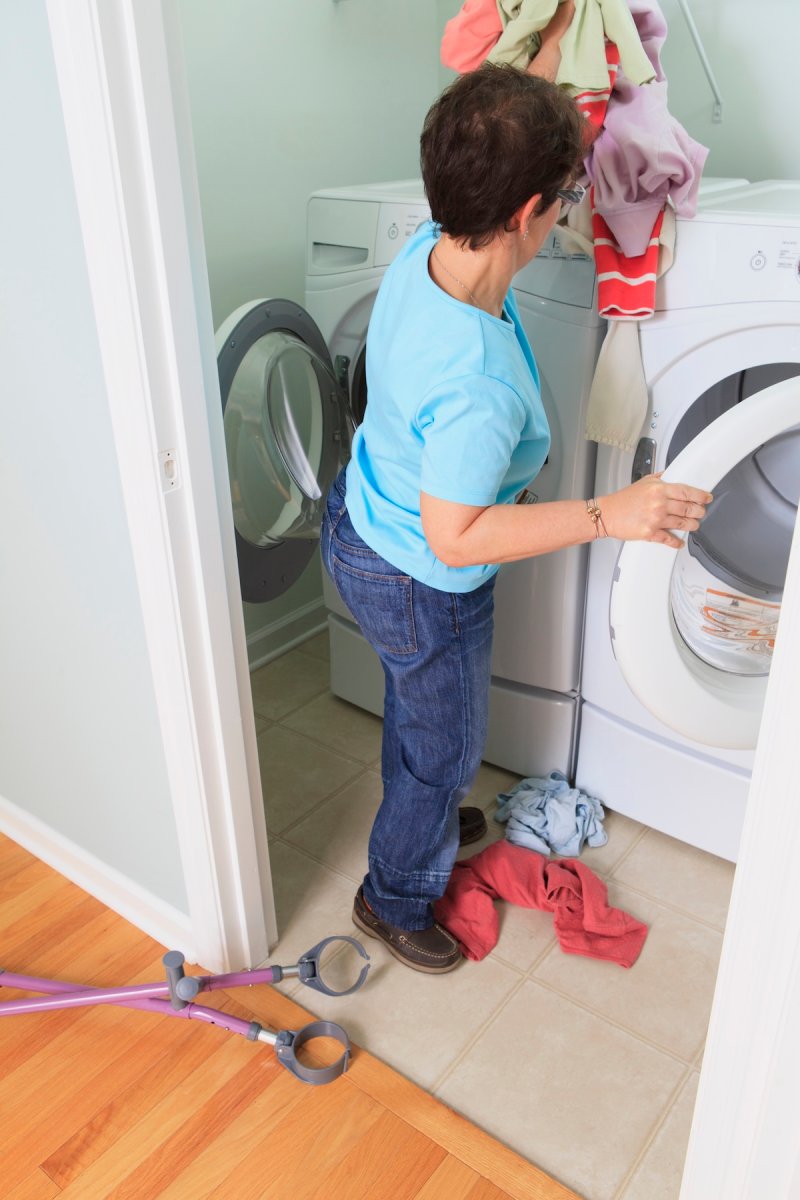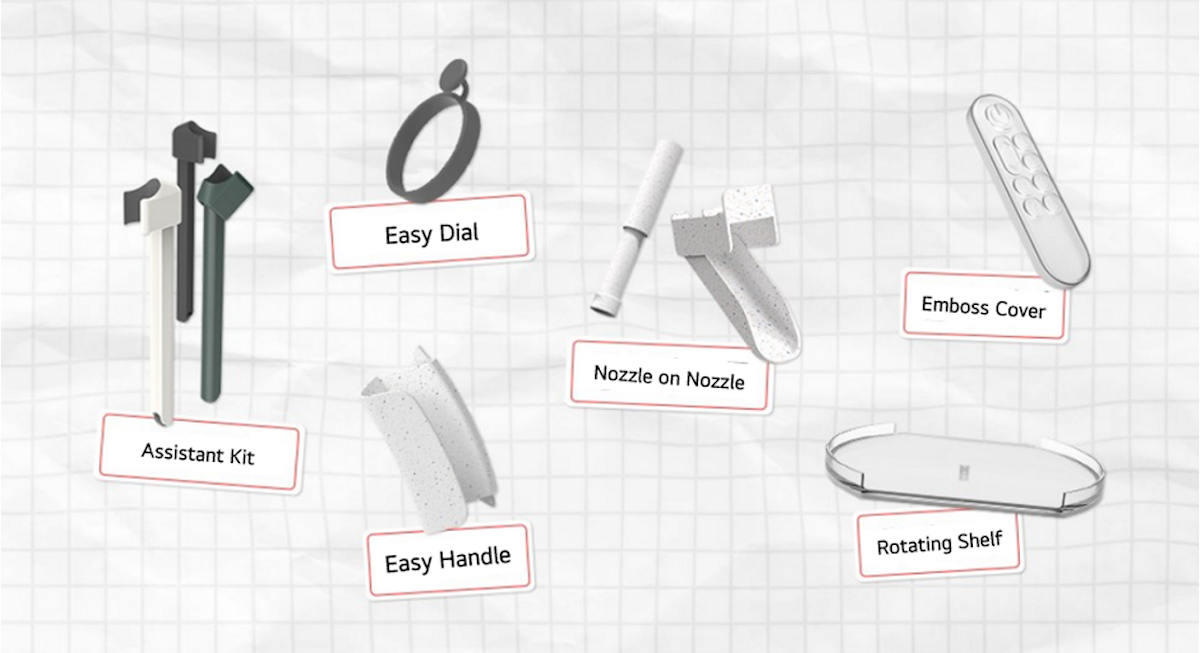

We may earn revenue from the products available on this page and participate in affiliate programs. Learn More ›
Purchasing a new dishwasher or other appliance can become more challenging if you have accessibility issues. New features and retrofits can make it easier for aging adults or anyone with disabilities.
Most (75 percent) adults aged 50 and over prefer to stay in their current home and age in place, according to a recent AARP survey. But getting older can lead to physical challenges, such as muscle weakness, troubling standing, or dementia, conditions that could make it more difficult to operate basic household appliances. Many of the adults surveyed said they need modifications in their home to support independent aging, including kitchen upgrades.
Anyone needing better access to appliances can choose models designed with features that enhance accessibility. Examples include stovetops and ovens with front controls, refrigerators with drawers and pull-out shelves, and microwave drawers instead of models that sit on counters or are installed higher up. Fortunately, there are more accessible appliances and features on the market than ever before, helping people of all ages and abilities to still thrive at home.

Whirlpool’s New Spin&Load Dishwasher Rack
The latest innovative appliance feature getting attention is Whirlpool’s Spin&Load Dishwasher Rack. The company is touting this innovation as the most inclusive dishwasher lower rack ever made. Designed in collaboration with the United Spinal Association as part of the brand’s larger commitment to human-centered and inclusive design for the kitchen, the 360-degree spinning lower rack makes it easier for people with varying levels of reach to still load and empty a dishwasher.
In essence, this rotating design allows better access to all areas of the lower rack of the dishwasher, reducing the need for individuals to reach, lean, or reposition themselves while loading and unloading their dishes. This is particularly beneficial for those who use wheelchairs or live with limited mobility.
According to a reviewer on the Whirlpool website who gave the rack a 5-star rating, it is super convenient and has been a game changer for those living in the reviewer’s multigenerational home, as both parents now use walkers. This special upgrade makes them both feel more capable after not being able to load and unload a dishwasher for quite some time. Now they can easily spin the rack to conveniently get dishes in and out.
The rack is simple to install. Roll out your existing rack, set the Spin&Load Rack on the door with the beveled corners facing forward, and then roll back your new rack to get started on your next load. This accessory is compatible with all 24-inch Whirlpool Corporation dishwashers manufactured after 2018, including Amana, JennAir, KitchenAid, and Maytag brands. The full list of compatible models can be found at Whirlpool.com. You can purchase the Spin&Load Rack for $149.99 at Whirlpool.
Other Accessible Appliances
The Americans with Disabilities Act (ADA) provides requirements that appliances must meet to be considered ADA-compliant, which means they are designed or modified to be physically accessible to people with disabilities to ensure that the appliance users can live safely and comfortably. These ADA-compliant appliances can be extremely helpful to both people with disabilities and older adults who are aging in place.
Some of the major appliances and the requirements necessary to meet ADA standards include the following: All controls and operating mechanisms on these products must be operable with one hand; not require tight grasping, pinching, or twisting of the wrist; and require a force of no more than 5 pounds to activate them. Also, the maximum high forward reach for controls and operating mechanisms is 48 inches and the maximum low forward reach is 15 inches for dishwashers, ranges, cooktops, wall ovens, microwaves, range hoods, clothes washers, and clothes dryers.

Additional requirements include:
Dishwashers
- All rack space needs to be easily accessible from the front of the machine for loading and unloading dishes.
Top-Freezer Refrigerators
- 100 percent of the fresh food space needs to be below 54 inches.
- 50 percent of the freezer space should be below 54 inches.
- Controls must be below 54 inches.
Side-by-Side Refrigerators
- Must allow parallel approach by a person in a wheelchair with maximum high-side reach of 54 inches for operation.
Ranges
- If ovens or cooktops have knee spaces underneath then they should be insulated or otherwise protected on the exposed surfaces to prevent burns, abrasions, or electrical shock.
- The location of controls for ranges and cooktops shouldn’t require reaching across burners.
Cooktops
- If ovens or cooktops have knee spaces below, the spaces should be insulated or otherwise protected on the exposed surfaces to prevent burns, abrasions, or electrical shock.
- The location of controls for ranges and cooktops shouldn’t require reaching across burners.
Wall Ovens
- Ovens should have controls on front panels; they may be located on either side of the door.
Range Hoods
- The location of controls for range hoods shall not require reaching across burners.
Clothes Washers and Dryers
- Washing machines and clothes dryers need to be front loading.

Retrofitting Existing Appliances to be More Accessible
Of course, buying new, more accessible appliances that help you clean and cook, among other tasks, can quickly add up. Unfortunately, the Spin&Load Dishwasher Rack is one of few options for homeowners to save money by retrofitting existing appliances to make them easier to use. GE sells an Access Kit, which is a collection of 400 tactile and Braille stickers to label the most commonly used settings on standard appliances, including washing machines, dryers, dishwashers, ovens, and cooktops.
LG unveiled its new Universal Up Kit, but it’s not yet available for purchase. The goal is to make appliances more accessible to those living with disabilities by supplying specialized attachments. The kits will likely include adaptive products like larger handles that are easier to grasp, high-contrast labels, rotating refrigerator shelves, adjustable water dispenser nozzles, and more.
Keep an eye out for more tools like these, and don’t hesitate to request such innovations from your favorite appliance manufacturers.
